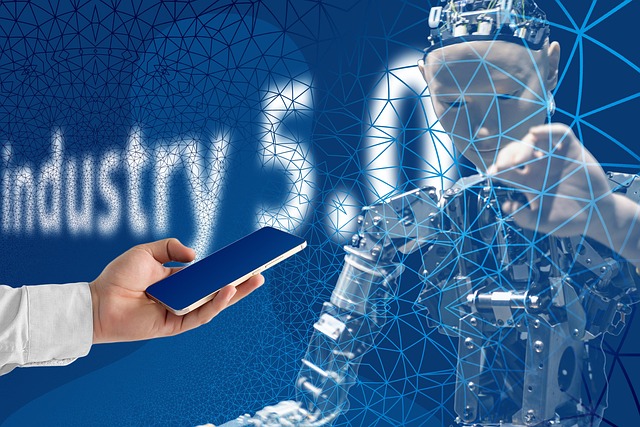# The Evolution of AI Technology: Transforming Industries and Enhancing Everyday Experiences
The landscape of artificial intelligence (AI) has undergone a remarkable transformation since its inception. Once a niche area of computer science, AI technology has now permeated various sectors, reshaping industries and enhancing everyday experiences. This article explores the evolution of AI, its impact on different industries, and how it has become an integral part of our daily lives.
## A Brief History of AI Development
To appreciate the current state of AI, one must first understand its historical context. The concept of artificial intelligence can be traced back to the mid-20th century when pioneers like Alan Turing and John McCarthy laid the groundwork for machine learning and cognitive computing. Turing’s seminal work on the Turing Test sparked discussions on machine intelligence, while McCarthy’s coining of the term “artificial intelligence” in 1956 marked the formal beginning of AI research.
Fast forward to the 1980s and 1990s, and the field saw significant advancements with the introduction of expert systems, which utilized rule-based logic to mimic human decision-making. However, the limitations of these systems became apparent as they struggled with uncertainty and complex data. The turn of the millennium ushered in a new era characterized by the advent of machine learning, particularly deep learning, which leveraged neural networks to process vast amounts of data more effectively. This shift laid the foundation for today’s AI technologies, enabling them to learn from experience and improve over time.
## AI’s Impact on Various Industries
The influence of AI technology is evident across a multitude of industries, each experiencing transformative changes. In the healthcare sector, for instance, AI algorithms analyze medical data to assist in diagnostics, predict patient outcomes, and even personalize treatment plans. Machine learning models can process thousands of medical images in seconds, identifying anomalies with a level of accuracy that often surpasses human capabilities. This not only enhances the efficiency of healthcare providers but also improves patient outcomes through timely interventions.
Similarly, the finance industry has embraced AI to revolutionize processes such as fraud detection, risk assessment, and algorithmic trading. Financial institutions employ sophisticated AI algorithms to analyze transaction patterns and detect anomalies, significantly reducing the incidence of fraud. Furthermore, AI-powered chatbots and virtual assistants are becoming commonplace, providing customers with instant support and personalized financial advice. As a result, the sector is not only becoming more efficient but also more customer-centric, enhancing user experiences.
Another sector experiencing significant transformation is retail. With the integration of AI, retailers can analyze consumer behavior and preferences to optimize inventory management and personalize marketing strategies. Predictive analytics enable businesses to forecast demand accurately, reducing waste and improving profitability. Additionally, AI-driven recommendation systems, such as those employed by e-commerce giants, enhance the shopping experience by suggesting products tailored to individual preferences, thereby increasing customer satisfaction and loyalty.
## Enhancing Everyday Experiences with AI
Beyond industry-specific applications, AI technology has also found its way into everyday experiences, fundamentally changing how individuals interact with technology. Smart home devices, powered by AI, have become increasingly prevalent, allowing users to control their environments with voice commands or through mobile applications. From smart thermostats that learn user preferences to security systems that detect unusual activities, these innovations are enhancing convenience and security in daily life.
Moreover, the rise of virtual assistants like Amazon’s Alexa, Apple’s Siri, and Google Assistant has transformed how people access information and manage tasks. These AI-driven tools can perform a multitude of functions, from setting reminders to providing real-time information about the weather or traffic. As natural language processing (NLP) technology continues to advance, the interactions between humans and machines become more intuitive and seamless, fostering a more integrated digital experience.
In the realm of entertainment, AI algorithms curate personalized content recommendations on streaming platforms, ensuring that users discover new shows and movies aligned with their tastes. This has not only changed how audiences consume media but has also influenced content creation, as AI tools analyze viewer preferences to inform producers about trending themes and genres. Consequently, the entertainment industry is witnessing a shift towards more data-driven decision-making, enhancing both creativity and engagement.
## Conclusion: The Future of AI Technology
As AI technology continues to evolve, its potential to transform industries and enhance everyday experiences is boundless. The integration of AI into various sectors has already demonstrated significant benefits, from improving efficiency and productivity to personalizing user experiences. Looking ahead, the ongoing advancements in AI, particularly in areas like quantum computing and advanced robotics, promise to unlock even greater capabilities.
However, the rise of AI also raises important ethical considerations. Issues such as data privacy, algorithmic bias, and job displacement necessitate careful consideration and proactive measures to ensure that AI technology serves society positively. As we navigate this evolving landscape, collaboration between technologists, policymakers, and ethicists will be crucial in shaping a future where AI enhances human potential rather than diminishes it.
In summary, the evolution of AI technology has been marked by significant milestones that have fundamentally altered industries and enriched everyday experiences. As we stand on the cusp of further advancements, the future of AI holds immense promise, paving the way for innovations that will continue to shape our world for years to come.











